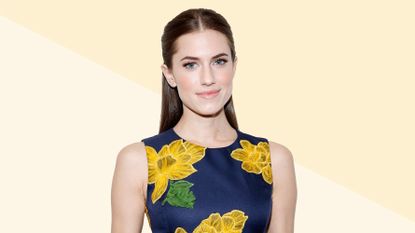

As consumers of pop culture, we tend to (kiiiiinda unfairly) assume our favorite celebrities should have articulate opinions on social issues. And while many celebrities aren't prepared to deliver nuanced off-the-cuff answers to questions about rape, feminism, and racism, Allison Williams is, 100 percent.
While celebrating Breyers 150th birthday (side note: so much ice cream was consumed over the course of this interview), the Girls star spoke to MarieClaire.com about topics many celebs would shy away from. But are we really surprised? This is the actress who released a sexual assault PSA following the Brock Turner verdict and challenged her own privilege by signing onto a horror film about racism in America. She has a lot to say, and we're game to listen.
Marie Claire: Do you think Girls has changed millennial women's approach to feminism and helped popularize it?
Allison Williams: I don't know if the two can be separated. I think Lena has done so much to educate young women and millennial women about, first of all, what it means to be a feminist. Which is much less militant than anyone thinks it is if they didn't grow up around the term. Lena's done an incredible job of being like, "no, no, it's just that you think women should have equal pay and equal rights. We are equal to each other." The more times people say that, the less of a big deal it becomes for people to say that they're feminists. But I think the girls on Girls struggle with their feminism. It's probably sparked some really good conversations about the topic. But my hope is that Lena's been able to provide enough information and knowledge extracurricularly to inform those conversations, and make sure they're on the right track. I think it would be very hard to be a fan of our show and believe in male supremacy.
MC: We were so moved by the cast's sexual assault PSA. What did making that mean to you?
AW: I came out of a year of reading Missoula by Jon Krakauer, watching The Hunting Ground, watching 30 for 30 about the Duke lacrosse players. So I've been trying to study and read as much about it as I possibly can. It's something I've been thinking about a lot; I'm trying to figure out what constellation of issues leads to sexual assault itself being such an issue. There are so many things involved: it's the bystanders, it's boys not knowing that they need consent, it's also drinking culture—but to blame all of those things and not say that maybe there's an issue with the way we're raising our boys....
MC: Yeah, it's such a complicated issue, and deserves way more room in our cultural conversation.
Stay In The Know
Marie Claire email subscribers get intel on fashion and beauty trends, hot-off-the-press celebrity news, and more. Sign up here.
AW: It's so complicated, a lot of people stay clear of it and don't talk about it, which is exactly what the problem is. The whole message of our PSA is this is a personal relationship you might have with this event. It could be someone you know and love. You don't even need to worry about any of the politics, you just need to listen, and be there for her or him. My hope was that the PSA would spark people into thinking about sexual assault, and at the very least mean that survivors felt seen. We had already been working on it before the Stanford rape victim's statement came out, which was so striking. It just made us edit it and get it out more quickly.
Just thinking you're not racist, is so not—you're not *done.* There's so much people need to think about, which I think they're trying to ignore and not think about.
Allison Williams
MC: You're clearly really passionate about social issues, and your first feature film, Get Out, is a horror movie that tackles racism. Director Jordan Peele said he wants to use horror as a lens to discuss this hugely important topic—did that draw you to the movie?
AW: A hundred percent. I've never done a movie because I love them too much to do one that I don't love. I've been waiting, and waiting, and waiting for the right one. I get this script—and you assume it's a comedy because it's Jordan Peele—and I read the first page and I was like, "oh my god, this is not a comedy, this is not Key and Peele, this is something totally different." By the time I finished the script, I was already thinking about how I would do it, and obsessed with how to layer my performance so it means different things the first time you watch it, the second time you watch it, the third time you watch it.
MC: It seems like the film will promote a lot of social dialogue.
AW: I was salivating at the idea of the conversations that it would spark in the movie theater, during the movie, and after the movie. I can picture friends going out to dinner and debating things about the movie. Basically, Jordan's thought was why don't people use horror—which attracts such a diverse group of people into a movie theater, specifically millennials—why don't people use it to say anything? Jordan wanted to do something really particular with this, and I was so on board.
MC: So, is that the main reason you were drawn in?
AW: I do a lot of work with Horizons National, so the idea of the lingering, undeniable racism that exists in our country is something that I've spent a lot of time thinking about, learning about, trying to educate myself on, and listening about. So I wanted to do something that would motivate other people to go on that same journey. Just thinking you're not racist, is so not—you're not done. There's so much people need to think about, which I think they're trying to ignore and not think about. The movie is so well-timed, I'm desperate to for it to come out before the election.
MC: Going back to Girls, how has being on the show informed your twenties? It's such an important decade in terms of personal growth and development.
AW: It's been this incredible safety blanket. Every summer I know I'm going back to set. It's allowed me to be selective about the things that I do, and don't do. It's given me incredible friendships and an amazing experience. I'm so spoiled by the caliber of the actors, directors, and crew members. I just love everyone. It's been the perfect graduate school experience.
Follow Marie Claire on Facebook for the latest celeb news, beauty tips, fascinating reads, livestream video, and more.

Mehera Bonner is a celebrity and entertainment news writer who enjoys Bravo and Antiques Roadshow with equal enthusiasm. She was previously entertainment editor at Marie Claire and has covered pop culture for over a decade.
-
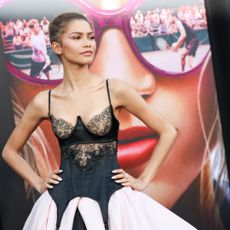 Zendaya's Method Dressing Marathon Is Over
Zendaya's Method Dressing Marathon Is OverShe found a new way to serve in custom Vera Wang.
By Halie LeSavage Published
-
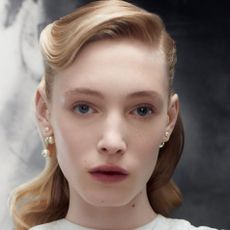 Bitten Lips Took Center Stage at Dior Fall 2024 Show
Bitten Lips Took Center Stage at Dior Fall 2024 ShowModels at the Dior Fall 2024 show paired bitten lips with bare skin, a beauty trend that will take precedence this season.
By Deena Campbell Published
-
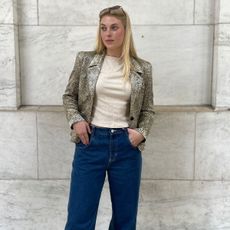 30 Spring Items That Solve My Expensive-Taste-on-a-Humble-Budget Dilemma
30 Spring Items That Solve My Expensive-Taste-on-a-Humble-Budget DilemmaSee every under-$300 spring item on my wish list.
By Natalie Gray Herder Published
-
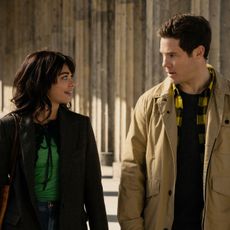 Sarah Hyland and Adam Devine Play 'How Well Do You Know Your Co-Star?'
Sarah Hyland and Adam Devine Play 'How Well Do You Know Your Co-Star?'The 'Modern Family' stars reunited for the 'Pitch Perfect' spinoff series.
By Brooke Knappenberger Published
-
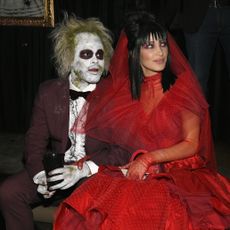 The 78 Best Celebrity Couple Halloween Costumes of All Time
The 78 Best Celebrity Couple Halloween Costumes of All TimeHonestly, we're impressed.
By Charlotte Chilton Published
-
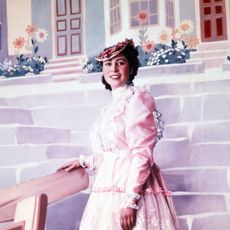 Super Rare Photos of Queen Elizabeth as a Young Woman
Super Rare Photos of Queen Elizabeth as a Young WomanFrom childhood snapshots to portraits as a young princess, beautiful and rare photos of the late Queen Elizabeth as a young woman.
By Mehera Bonner Published
-
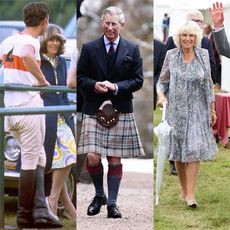 King Charles III and Queen Consort Camilla's Relationship: A Timeline
King Charles III and Queen Consort Camilla's Relationship: A TimelineWith the passing of Queen Elizabeth II, Charles has ascended to the throne as king.
By The Editors Published
-
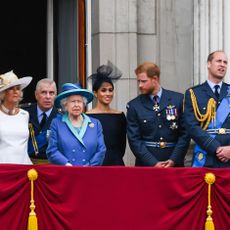 Who Is Next in Line for the British Throne, Explained
Who Is Next in Line for the British Throne, ExplainedAnd yes—Harry and Archie are still in the line of succession.
By Andrea Park Published
-
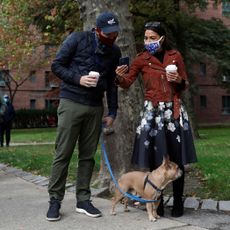 Who Is Alexandria Ocasio-Cortez's Fiancé Riley Roberts?
Who Is Alexandria Ocasio-Cortez's Fiancé Riley Roberts?AOC's husband-to-be is an "easygoing redhead" who lives with her in D.C.
By Katherine J. Igoe Published
-
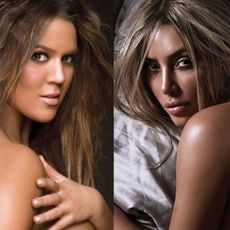 68 Times the Kardashians Posed Fully Nude and Owned It
68 Times the Kardashians Posed Fully Nude and Owned ItAnd we mean fully nude—as in, not a shred of clothing.
By Bianca Rodriguez Published
-
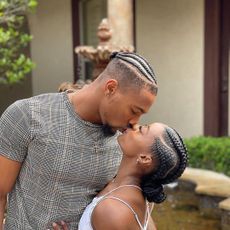 Who Is Jonathan Owens, Simone Biles's Fiancé and NFL Player?
Who Is Jonathan Owens, Simone Biles's Fiancé and NFL Player?"The easiest yes!" Simone wrote about the couple's engagement.
By The Editors Published